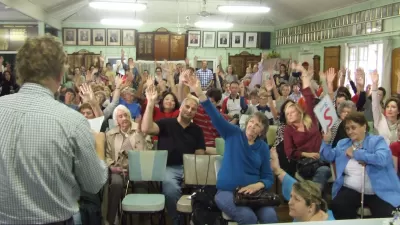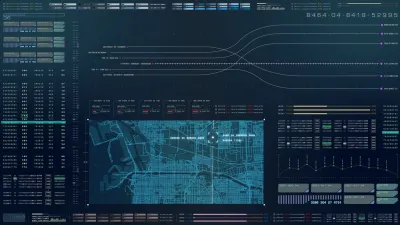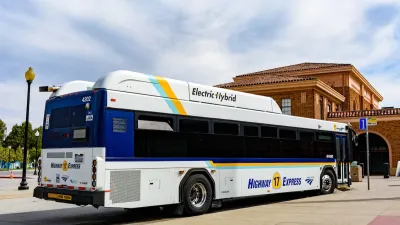Online reviews aren't representative of overall neighborhood populations, but they can reveal data that otherwise might go unnoticed during research phases of planning processes.

Charlotte Hsu shares new research that makes the case for allowing space for online reviews in planning processes.
Every day, people share a dizzying amount of information about local communities online. They talk about whether their neighbors are friendly, how well the buses run, what kinds of restaurants are in an area, and much, much more.
A new study by University at Buffalo researcher Yingjie Hu shows how we can sort through this vast trove of digital data to improve cities and people's quality of life.
The study, published by the Annals of the American Association of Geographers, posts on the site Niche.com to search for insights about public opinion.
"The goal was to efficiently sort through thousands of opinions to learn about people's perceptions of their communities," explains Hsu. "The study combined spatial analysis, machine learning and natural language processing techniques to identify features of neighborhoods that people talked about online, and what reviewers' general feelings were about those attributes."
So, can online reviews help planners spot insights into public opinion they might otherwise miss? According to researchers, data harvesting can complement traditional methods of public engagement and research.
FULL STORY: How online neighborhood reviews could aid urban planning

Alabama: Trump Terminates Settlements for Black Communities Harmed By Raw Sewage
Trump deemed the landmark civil rights agreement “illegal DEI and environmental justice policy.”

Planetizen Federal Action Tracker
A weekly monitor of how Trump’s orders and actions are impacting planners and planning in America.

The 120 Year Old Tiny Home Villages That Sheltered San Francisco’s Earthquake Refugees
More than a century ago, San Francisco mobilized to house thousands of residents displaced by the 1906 earthquake. Could their strategy offer a model for the present?

In Both Crashes and Crime, Public Transportation is Far Safer than Driving
Contrary to popular assumptions, public transportation has far lower crash and crime rates than automobile travel. For safer communities, improve and encourage transit travel.

Report: Zoning Reforms Should Complement Nashville’s Ambitious Transit Plan
Without reform, restrictive zoning codes will limit the impact of the city’s planned transit expansion and could exclude some of the residents who depend on transit the most.

Judge Orders Release of Frozen IRA, IIJA Funding
The decision is a victory for environmental groups who charged that freezing funds for critical infrastructure and disaster response programs caused “real and irreparable harm” to communities.
Urban Design for Planners 1: Software Tools
This six-course series explores essential urban design concepts using open source software and equips planners with the tools they need to participate fully in the urban design process.
Planning for Universal Design
Learn the tools for implementing Universal Design in planning regulations.
Clanton & Associates, Inc.
Jessamine County Fiscal Court
Institute for Housing and Urban Development Studies (IHS)
City of Grandview
Harvard GSD Executive Education
Toledo-Lucas County Plan Commissions
Salt Lake City
NYU Wagner Graduate School of Public Service





























